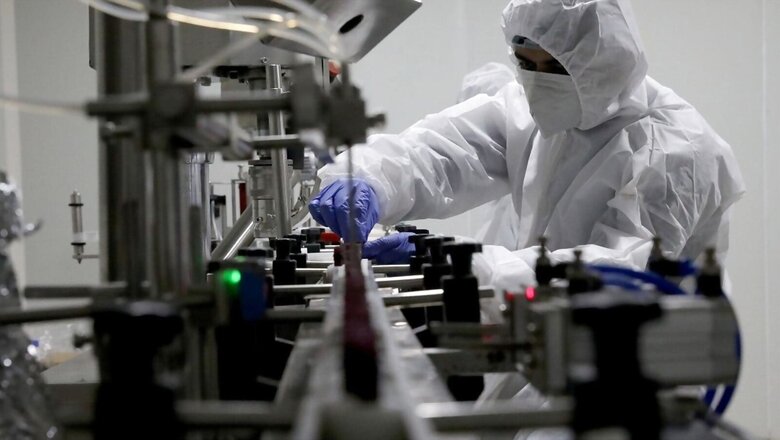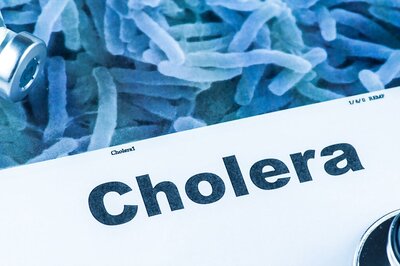
views
Suggested to undergo RT-PCR tests but this time not for detection of Covid-19? The outbreak of the pandemic has made Indians familiar with this molecular test. But, to put things into perspective, the reverse transcription-polymerase chain reaction (RT-PCR) test is used to detect a variety of other illnesses, including Zika and dengue.
With the opening of several new laboratories undertaking these tests since the eruption of Covid, the cost and report-generation time for the examinations have come down considerably. Experts believe that in pre-Covid days, only around 200 laboratories in the country were conducting RT-PCR tests. The number has now zoomed to 3,000.
News18.com spoke to medical experts with the aim to understand which tests are used for the detection of Covid-19, Zika, dengue and chikungunya, and how they work.
RT-PCR tests
Under molecular testing or RT-PCR technology, the virus is first extracted from blood samples or nose or throat swabs. The virus’s genome sequence is then allowed to multiply in an outside (the body) setting. This technology is considered a gold standard as it detects even a small quantity of the virus in the body, leading to early detection. The reports are generated within 2-4 hours.
In the first two to three days of the entry of the pathogen, for instance, a virus, their number would be too small to cause any symptoms. While these viruses or pathogens multiply every hour, they generally require around 5 to 7 days to cause symptoms.
“So far the best technology to detect most of the viruses is RT-PCR testing, also known as molecular testing. These tests are considered confirmatory in nature and generally generate reports in less than 2-4 hours. While this test has been prescribed for several other diseases as well such as Zika, the price of this test and availability has gone up considerably in the past one year,” said Dr Amrita Singh, chief of lab services, Neuberg Diagnostics.
While TrueNat and CBNAAT tests are also similar technologies, Singh said it takes up to 1.5 hours to generate results but the machine can load only two samples in one go, whereas in RT-PCR the machine processes 40 to 400 samples in one round.
According to Dr Gautam Wankhede, director of medical affairs at Pune-based molecular diagnostics firm Mylab Discovery Solutions, “As Covid-19 is contagious and could prove lethal, its early detection is important. Hence, RT-PCR is the preferable method to detect Covid-19.”
“For the detection of Zika virus, RT-PCR is a preferable method. While Zika’s serological diagnosis is difficult, PCR-based nucleic acid detection is a suggested method. Even antibody tests don’t give reliable results because they cross-react with other viruses of the same family such as dengue. Earlier there were cost constraints as tests were expensive and not many labs were performing these tests. However, due to Covid-19, we now have over 3,000 labs in India performing these tests against 200 labs in pre-Covid days,” Wankhede said.
According to the ministry of health and family welfare’s guidelines, RT PCR is used for early detection of chikungunya as well.
Rapid Antigen Test (RAT)
In Rapid Antigen Test (RAT), tissue from the human body is tested by using a manmade or synthetic antibody.
“For instance, Covid-19 synthetic antibody will be used over the Covid-19 sample to see if a similar virus is there in the sample or not. However, this test needs a certain minimum number of virus particles to be positive, so there are chances of missing a few cases,” Wankhede said.
As per government protocols for several diseases including Covid-19, the negative RAT would require the patient to undergo RT-PCR whereas RAT’s positive means positive. These tests are rapid and generate results within an hour, sometimes even in 15 minutes.
In the detection of dengue, the ELISA method can be used. ELISA is enzyme-linked immunosorbent assay, where this test detects antigen and antibodies in the blood sample.
“In dengue, the NS1 antigen ELISA is the preferred method under which non-structural protein NS1 of the dengue virus is detected. This protein is secreted into the blood during the infection,” said Singh.
Antibody tests
Any pathogen that enters the human body leads to the creation of antibodies. The detection of these antibodies in blood tests shows the recent or past infection. However, these antibodies are not generated immediately by the body as infection grips. Hence, generally, these tests are not used for detection purposes.
In certain diseases such as Covid-19 or dengue, where the progression of the disease could prove fatal, antibody testing does not hold any value. The antibody tests are not popular or prescribed for diagnosis purposes but for surveillance purposes. It is counted as last in the line for diagnosing purposes.
“These tests have taken a back seat and molecular tests have become more reliable and popular,” said Wankhede.
Antibody ELISA tests detect dengue and chikungunya but are not preferred for diagnosis as they show reliable results after 5-7 days of illness. These tests are beneficial only after the confirmation of infection or receiving vaccination.
Read all the Latest India News here

















Comments
0 comment